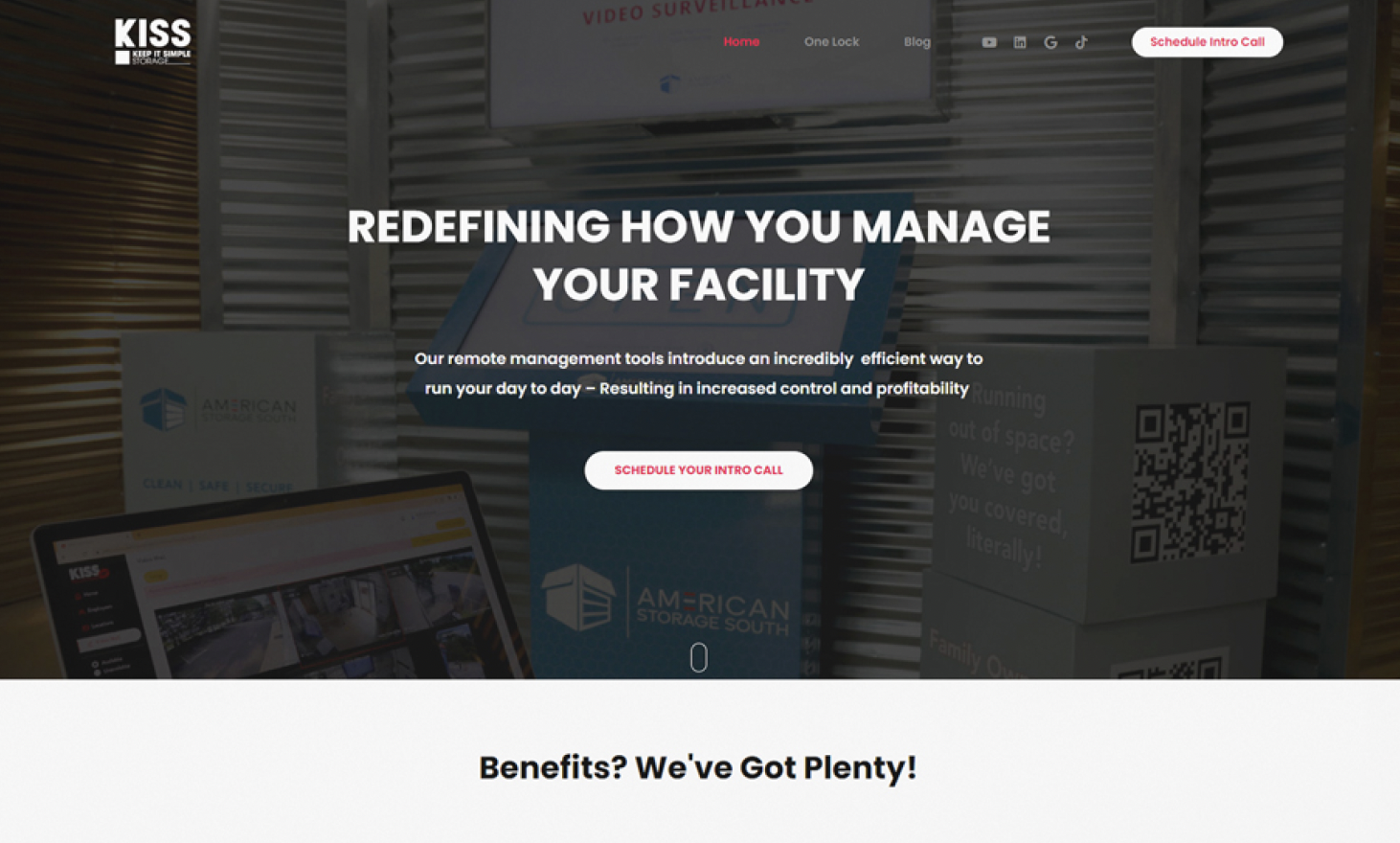- Developers
- Developer Blog
- Mobile App Development
- HIPAA Compliant Mobile App Development

profile

By Faiza Khalid
Verified Expert
5 years of experience
Faiza is a CIS engineer with a keen interest in software development, AI research, and technology writing.
Are you interested in developing a HIPAA-compliant mobile app?
63.4% of adults in the United States use a mobile app for health-related purposes, according to a report. Given the awareness of a healthy lifestyle and the popularity of health apps among the masses, the mobile health market is set to experience substantial growth in the coming years.
In this article
- Develop a HIPAA-compliant Mobile App: 9 Steps
- Ready to Build a HIPAA-Compliant Mobile App?
- FAQs on HIPAA-Compliant Mobile App Development
If you, as a business owner or an entrepreneur, want to develop a healthcare mobile app and secure your profit share in the lucrative market, you have made a viable decision.
However, health mobile app development is more than just putting a few developers together and building features using off-the-shelf tools. The healthcare market has stringent regulatory requirements. Health Insurance Portability and Accountability Act (HIPAA) compliance for health data security and privacy tops the list. In case of non-compliance, businesses face fines, penalties, and not to forget a tarnished reputation.
Developing a mobile app with HIPAA compliance requires a deep understanding of HIPAA regulations, compliance frameworks, application security, secure coding practices, cloud services, etc.
If you don’t have a professional team with this relevant expertise to take on the task, you can partner with a software development company such as DevTeam.Space. Our software engineers have developed many HIPAA-compliant solutions and can help you build yours.
In this article, we will go over how to develop a mobile app compliant with HIPAA regulations.
Develop a HIPAA-compliant Mobile App: 9 Steps
Take the following steps to build a mobile app with HIPAA compliance:
1. Understand Your App’s Compliance Requirements
Determine if your mobile app needs to follow HIPAA Act regulations. You can assess this by analyzing the type of your application’s end-users and data.
HIPAA compliant entities
HIPAA Act identifies two entity categories that should follow HIPAA regulations in their processes and software. These include covered entities and business associates.
Covered entities generate, store, and transmit protected health information (PHI) as a part of their operations. These include healthcare providers, healthcare plans, and healthcare clearinghouses.
A business associate is any entity that performs actions related to the PHI on behalf of covered entities. Business associates include medical billing companies, health information exchange companies, pharmaceutical companies, IT service providers, etc.

Get a complimentary discovery call and a free ballpark estimate for your project
Trusted by 100x of startups and companies like
App data
HIPAA defines protected health information or PHI as individually identifiable health information that needs to be protected and secured while in storage or transmission for healthcare services. HIPAA lists 18 PHI identifiers, including names, phone numbers, home addresses, social security numbers, medical record numbers, vehicle identifiers, device identifiers, etc.
Some types of app data that might require HIPAA compliance due to PHI information include the following:
- Patient health records;
- Prescription information;
- Appointment scheduling;
- Medical images;
- Health insurance information;
- Patient communication, etc.
If your mobile app has similar features that interact with PHI, your app should require HIPAA compliance. Similarly, if doctors, physicians, dentists, health insurance companies, medicare programs, etc., utilize your mobile application, your app could fall into HIPAA jurisdiction.
2. Decide on App Features for HIPAA Compliance
Now that you have determined your app requires you to follow HIPAA rules, decide on the features that help you deliver a HIPAA-compliant app. Some essential features for HIPAA compliance include the following:
User authentication and authorization
Implement strong user authentication via strong passwords and unique user names. Leverage multi-factor authentication that requires multiple authentication actions to log in to your health app. You can also use biometric authentication involving fingerprint, voice, or face recognition.
Implement an account lockout feature to protect your application from brute force attacks. The account should lock temporarily after multiple failed login attempts. Also, enforce session management to prevent session fixation attacks.
Access controls
Role-based access control allows users to access mobile features based on their roles. Set distinctive roles and responsibilities so they can access app features and PHI necessary for their jobs.
Access control lists help you manage access to sensitive information on your application. It allows you to keep an account of who accessed, modified, or deleted individual PHI records.
Data encryption
Secure your app data in storage and transmission. Use strong encryption algorithms like DSA and RES for data encryption with complex keys, preferably 256 bits. Utilize encryption protocols like SSL/TLC to secure your data while in transfer.
Secure telehealth
If you plan to include telehealth features like video calling for remote patient care, make it secure via end-to-end encryption, etc.
Emergency access
Implement emergency access procedures so that critical patient information is available during emergencies.
Data portability
Users should be able to access their data from anywhere. Moreover, users should be able to request secure data deletion from your platform.
Secure integrations
Provide secure integrations with external healthcare services like EHR (electronic health records), EMR (electronic medical records), laboratory databases, etc.
Mobile device management
You should include a remote data wipe feature to remotely delete PHI information in case of a mobile device loss. Enhance app security through mobile device management features like location tracking, content management, remote device lock, etc.
Audit logs
Enable logging of logins and events. The detailed audit logs with time stamps and user identification help keep track of access and modifications to the PHI on a mobile device.
Compliance monitoring
Offer continuous compliance monitoring on a mobile app through analytics dashboards and reporting capability. Some essential metrics include successful authentication rate, encryption status, audit log retention, secure transmission rate, incident detection rate, response time, etc.
User notifications
Notify users when their input information is being stored. Use a consent form in your mobile app. Send notifications to the concerned user in case of data breaches and violations of their private health information. Moreover, keep them informed of your response actions via push notifications.
3. Form a Team to Develop a HIPAA-Compliant Mobile App
You require a competent team of professionals to develop all your app features as planned. Hire for the following roles:
- UI/UX designer;
- Front-end developer;
- Backend developer;
- DevOps developer;
- Cybersecurity engineer;
- Cloud developer;
- Knowledge expert;
- Business analyst;
- Project manager.
Ensure all developers and professionals on your team have experience in HIPAA-compliant healthcare app design and development. We will discuss the skills to look for in a while. It’s a given that you need developers with solid expertise in mobile app development for stringent industries.
It is very unlikely you find such competency in freelance developers since freelance platforms are boiling with less-experienced developers looking for short-term gigs. We suggest you partner with full-time individual developers or dev teams from expert software development companies like DevTeam.Space.
Hire expert mobile app developers for your next project
1,200 top developers
us since 2016
4. Select a Development Methodology
A structured app development methodology helps organize the development process, including role assignment and resource allocation. It streamlines communication between concerned parties, like delivery timelines and regular updates, and helps manage the project scope.
Mobile app development teams usually employ agile methodology to meet changing end-user requirements and efficiently deliver features in a fast-paced app market.
You can opt for Scrum, a popular agile framework for your HIPAA-compliant mobile application. Scrum promotes iterative development, where each development iteration is called a sprint.
You can decrease your time-to-market via swift delivery of essential features first. Incremental development would help you enhance your app based on feature priority.
Maintain a backlog for your developers that maintains the priority and specifications of required features. If there are unexpected compliance requirements, you can deliver them in subsequent iterations.
Scrum also fosters close collaboration within the team. A daily standup and weekly sprints help monitor individual developers’ contributions and the overall project progress.
A retrospective meeting at the end of each sprint helps understand shortcomings in the development process and encourages future improvements.
You can read our blog on how to build a scrum team for your HIPAA compliance software project.
5. Provide Infrastructure for HIPAA-compliance software development
The next step is the provision of HIPAA-compliant software development infrastructure, including app hosting servers, database solutions, development tools, etc.
Cloud-based resources are extensively used for software development as cloud service providers offer easily scalable resources that are cost-effective and globally accessible.
Leading cloud providers, including Amazon Web Services and Microsoft Azure, offer configurable services to meet HIPAA compliance requirements.
For example, Amazon Web Services offers the following HIPAA-compliant cloud services:
- Amazon RDS (Relation Database Service) helps store and manipulate sensitive healthcare information.
- Amazon S3 (Simple Storage Service) offers simple and compliant storage solutions. Your developers can configure it to meet data security requirements in rest and transit.
- Amazon ECS (Elastic Container Service) helps control application deployment and management, considering HIPAA compliance requirements.
- Amazon VPC (Virtual Private Cloud) assists in creating isolated networks and the separation of PHI from non-PHI data.
- AWS CloudTrail enables tracking of API calls, audit logging, and compliance monitoring.
AWS also offers a compliance whitepaper that guides on designing, developing, and operating compliance workflows on AWS resources. It provides key compliance considerations and best practices.
6. Design and Develop an MVP
You need the right skills to design and develop a HIPAA-compliant application.
UI/UX design
Your UI/UX designers should design an intuitive and engaging user interface. HIPAA compliance features should be reflected in the UI, such as user authentication and role-based access. Integrate a user consent form with the registration flow.
Designers should create a logical app navigation structure with clear labels, menus, etc. Prioritize essential information and features in the information hierarchy. Ensure your app design adheres to the Americans with Disabilities Act (ADA) and is accessible to everyone, including differently-abled individuals.
Your designers should use the following tools and libraries for creating HIPAA-compliant app wireframes and prototypes:
- Material UI framework for hybrid applications;
- UIKit for iOS apps;
- Android Material Design for Android health apps;
- Adobe XD, Invision, Figma, etc., for wireframing and prototyping.
Front-end development
Your front-end developers develop the front-end components according to the design prototypes. You can choose between native and hybrid mobile app development.
Native apps are for a specific mobile operating system, such as iOS or Android. Hybrid or cross-platform apps target multiple mobile OS. They are web apps wrapped in a native container to run on several mobile operating systems.
A few considerations while making the choice are as follows:
Hire expert mobile app developers for your next project
- Native apps can offer better HIPAA-grade security as you get better control over device security via GPS, biometric authentication, etc. They provide sufficient protection against data leaks and other vulnerabilities.
- Native mobile apps offer optimum performance and user experience as they are optimized to leverage mobile hardware and OS, which is an advantage for healthcare apps that require real-time and quick access to healthcare data.
- Hybrid apps are cost-effective as you do not have to build apps for each operating system. You can reuse your app code.
- Hybrid apps also allow faster time to market as you can deploy one app on multiple platforms.
- A shared codebase encourages easier maintenance as there are no platform-specific updates.
- Cross-platform apps are less secure as you cannot directly leverage device security features.
- The user experience and performance of hybrid apps lag behind native apps. They tend to offer a near-native user experience.
- You might also face a lack of ecosystem integration with hybrid apps. Integrations with healthcare databases, EHRs, etc., require custom solutions that tend to be challenging with hybrid apps.
Your decision to develop a native or hybrid app depends on your compliance-related security and performance requirements. We suggest you build a native for maximum security and performance in the highly-regulated healthcare environment.
Some skills required for HIPAA-compliant app development that your developers should be proficient in are as follows:
iOS app development
- Swift or Objective-C programming language. Apple recommends Swift. It is a modern language that is easy to use, with a rich community of developers contributing to its features.
- iOS frameworks like SwiftUI accelerate UI development, Foundation offers libraries and classes for handling data, files, and networking, CoreLocation provides access to the device’s GPS, etc.
- Essential libraries that ease the app development process, like RxSwift, assist with reactive programming and event handling. SwiftJson is another library for parsing JSON data in iOS applications.
- Xcode IDE is an official integrated development environment for iOS apps that includes a code editor, interface builder, debugger, and simulator.
Android app development
- Java or Kotlin programming languages. Read a detailed comparison between the two languages in our article, Java vs. Kotlin.
- Android Jetpack, a set of tools and libraries by Google to assist in Android app development.
- Android Data Binding that simplifies binding of UI components with data sources and helps with UI updates, etc.
- Useful libraries, like RxJava, simplify asynchronous and event-driven programming, GSON helps parse JSON, etc.
- IDEs like Android Studio and Eclipse offer intelligent code editors, built-in simulators, etc.
Hybrid app development
- JavaScript, HTML, and CSS.
- Popular front-end frameworks like Ionic, React Native, etc., offer a range of tools and libraries to accelerate UI and feature development, such as a responsive grid system, reusable UI components, etc.
- Relevant IDEs like Visual Studio Code, Ionic CLI, React native CLI, etc., efficiently set up the development environment and write app code.
- Essential libraries and plugins accelerate development, like jQuery for simplifying DOM manipulation, Lodash for data manipulation, plugins to access native device features on hybrid apps, etc.
Backend development
- Node.js, a runtime environment to use JavaScript on the server side.
- Frameworks like Express.js help build scalable backend services for mobile apps. Other options include Spring Boot for Java and ASP.Net Core for cross-platform app backend.
- Essential libraries accelerate backend development, as passport.js helps with authentication, Helmet with security, Redis with data caching, and socket.io enables real-time communication.
Database management
The following technologies help with database management in mobile applications:
- SQLite is a lightweight database solution for mobile app development preferred for local storage.
- PuchDB supports offline data synchronization in hybrid apps.
- Realm, a mobile database framework, enables fast data querying in Android and iOS apps.
- The room persistence library acts as an abstraction layer over SQLite for implementing local storage.
- The core data framework handles data persistence and manages the model layer in iOS apps.
App security
- Developers can use security frameworks like CommonCrypto and Keychain Service for data encryption and secure storage.
- NSURL Session helps establish secure connections and handle data transmission.
- The authentication services framework supports biometric authentication in iOS apps.
- iOS MDM framework can help with device management and security features.
- Android security library supports the storage of encryption keys.
- OAuth2 and OpenID Connect libraries like AppAuth help secure authentication processes.
7. Test Your App for HIPAA Compliance
Test your mobile app for functionality and HIPAA compliance. App testers should proactively identify vulnerabilities and mitigate risks by implementing end-to-end security scanning, penetration testing, and risk assessments.
Your quality assurance developers should be vigilant for security vulnerabilities, like cross-site scripting, SQL injections, data leaks, etc. Closely assess the security of servers, databases, encryption techniques, etc.
Your application testers can use tools like OWASP ZAP to locate vulnerabilities, OWASP Mobile Security Testing Guide (MSTG) for dynamic security testing, Symantec Control Compliance Suite to help with compliance audits, etc.
8. Deploy your HIPAA-compliant Mobile App
Once your development team ensures the app meets your planned feature requirements, including HIPAA security standards, you can deploy your mobile health app for end-users. Follow publishing guidelines for specific native app stores like App Store and Play Store by Apple and Google, respectively.
Your mobile app developers should create the app assets and the final build of your code before publishing. Release your app in a controlled manner (available for a limited audience first), which helps with risk mitigation, quality assurance, and user feedback collection.
Your developers should also adopt DevOps practices to automate and streamline app development and deployment.
- DevOps helps automate deployment processes, like code compilation, testing, packaging, etc.
- Continuous integration automatically builds, tests, and integrates code changes into the code repository.
- Continuous delivery helps with continuous code deployment, etc.
9. Monitor and Improve
DevOps also supports continuous monitoring and logging to analyze app performance and identify issues in real time. A continuous feedback loop would help you drive future health app development and improvements based on monitoring and user feedback.
Ready to Build a HIPAA-Compliant Mobile App?
As discussed above, HIPAA-compliant mobile health application is an extensive and complex process. High-level expertise is required to build a robust and secure application that seamlessly fulfills HIPAA regulatory requirements.
We recommend you partner with an expert software development company with experience in healthcare software development if you do not find the required skills we just discussed in your project team,
DevTeam.Space can help you via its expert community of software designers, developers, and project managers. All our developers are vetted and skilled in the latest technologies. Senior developers with experience in building similar solutions manage these developers.
If you want to know more about how we can help you build a HIPAA-compliant application, leave your initial project specifications via this quick form. One of our account managers will contact you shortly to discuss further details.
FAQs on HIPAA-Compliant Mobile App Development
For developing HIPAA-compliant mobile apps, you need to implement several physical, technical, and administrative safeguards. Familiarize with HIPAA rules, opt for HIPAA-compliant development infrastructure, and partner with developers experienced in developing mobile applications with HIPAA compliance.
Mobile app HIPAA compliance is necessary if your app generates, stores, transfers, or interacts with protected health information (PHI) in any way. HIPAA intends to secure and keep private the medical records and personal health information of all patients.
Apps used by covered entities or business associates should follow HIPAA compliance regulations. These apps include patient-facing apps with PHI, pharmacy apps, laboratory apps, healthcare provider apps, health clearinghouse apps, etc., that interact with personal health information.

Alexey Semeney
Founder of DevTeam.Space
Hire Alexey and His Team To Build a Great Product
Alexey is the founder of DevTeam.Space. He is award nominee among TOP 26 mentors of FI's 'Global Startup Mentor Awards'.
Alexey is Expert Startup Review Panel member and advices the oldest angel investment group in Silicon Valley on products investment deals.


